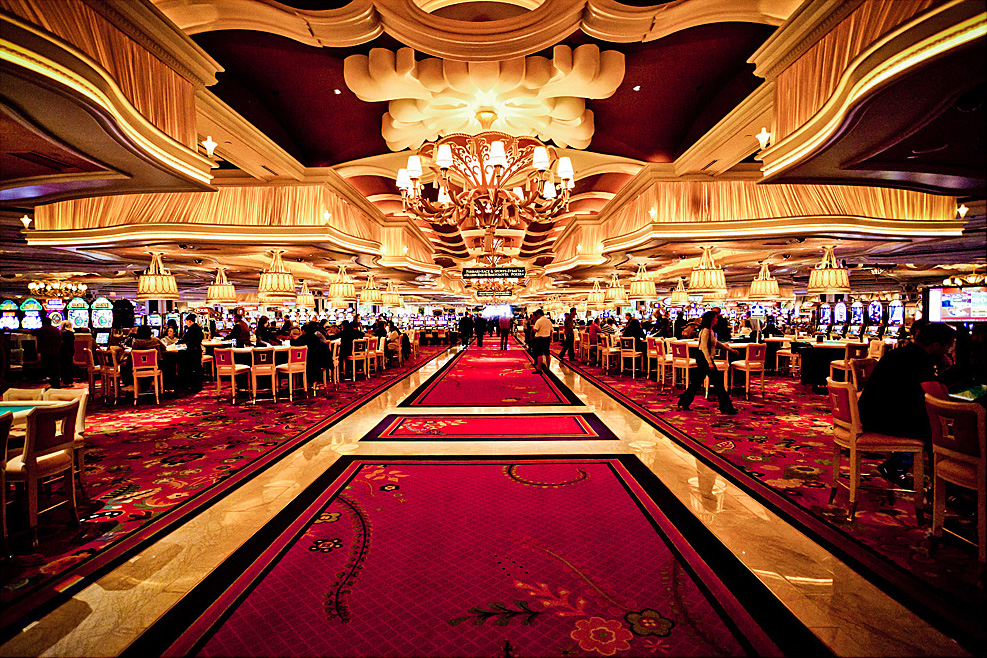Casino entertainment have long been a staple in human culture, delivering not just entertainment but a fascinating reflection of our hopes, dreams, and fears. From the turning reels of a slot machine to the strategic gameplay of poker, these games represent a range of human emotions and experiences. At their core, casino games are not just a chance to win money; they are a microcosm of life itself, where risk versus reward intertwine and fortunes can change in an moment.
As players assemble around tables or sit in front of vibrantly illuminated machines, they take part in a tradition that transcends mere playing. These games echo our natural desires for social interaction, excitement, and the pursuit of luck. They also disclose deeper truths about human nature, such as our relationship with luck and the excitement of uncertainty. In exploring casino games, we discover not only the mechanics of play but also the intricate pattern of the human journey, showcasing our woven narratives of aspiration and reality.
The Psychology of Gambling
Gambling is intrinsically connected in human psychology, tapping into various emotions and wants. The thrill of taking risks is a core aspect that attracts participants, whether it’s thrill of spinning a roulette wheel or the anticipation of drawing a winning card in a poker game. This rush of adrenaline is often compared to other forms of excitement, as the unpredictability of outcomes elicits a distinct psychological response. Players often become captivated by the possibility of striking it rich, leading to an almost magnetic draw toward gambling games.
Another, a crucial component of the psychology behind gambling is the concept of optimism and ambition. Players often nourish dreams of financial freedom and the opulent lifestyle that can accompany winning. This optimism fuels their ongoing participation in gambling, as it provides a sense of purpose and the conviction that a transformative win could be just one wager away. The story of beating the odds and finding success resonates with many, reinforcing their dedication to play and involve themselves with these games.
Lastly, social aspects play a significant role in gambling psychology. Gambling venues are designed to foster social interaction, where gamblers gather to share the experience of wins and losses. This communal aspect not only enhances enjoyment but also affects behavior, as individuals often mimic the actions of others around them. The collective approval found in mutual thrill can magnify the emotional experience, making casino games a mirror of not just personal desires but also shared involvement within the gambling community.
### Risk and Reward: A Double-Edged Sword
Gambling games embody the fragile balance between risk and reward that resonates deeply with human psychology. The excitement of placing a bet is often accompanied by a jolt of energy, as participants are confronted with the chance of striking it rich, yet conscious of the potential to lose. This dual experience reflects a fundamental aspect of life: the choices we make often come with intrinsic risks, and the chase for gain can push us to embrace risks we might not normally consider. In this way, gambling activities mirror real-world decisions, enticing gamblers to risk not just their money, but also their aspirations.
The allure of jackpot prizes and payouts fuels a wave of hope, motivating gamblers to imagine a better future that could arise from a lucky spin of the wheel or turn of a card. This optimism can motivate individuals to engage in more daring actions, pushing them to take greater risks in search of monetary success. However, just as in life, the outcomes of these decisions can lead to both triumph and despair. The stories of both jackpot winners and those who have lost everything at the casino demonstrate the random nature of luck and its impactful effect on our futures.
Ultimately, the interaction of engaging with gambling activities serves as a strong reminder of the human condition. Every session played is filled with the tension of risk, as players weigh the rewards against the dangers. This balance not only highlights the excitement that comes with betting but also reveals the weaknesses that come with the desire for more. As we navigate the challenges of choice and results in both the casino and in life, we find that the pursuit of risk and reward shapes our identities and experiences in profound ways.
Culture and Solitude in Casino Culture
Gambling environment is a unique blend of social engagement and personal pursuit, reflecting the dualities of individual experience. Players often come together around tables, experiencing in the excitement of the action, rejoicing in wins, and sympathizing over losses. This social aspect is crucial, as it fosters a sense of belonging and bonding among diverse groups of people. Regular visitors to casinos may form friendships and establish routines, turning the casino into a second home where they experience connected to a greater community of players.
However, the attraction of gambling activities can also lead to isolation. As players become immersed in the excitement of gambling, they may isolate from personal relationships or fail to engage with the environment outside the casino. For some, the search of a windfall can overshadow genuine connections, leading to isolation. The situation of being surrounded others yet feeling solitary is not rare, as the attention shifts from collective fun to the private stakes of each individual’s path. J88
This interplay of community and isolation creates a vivid mosaic that defines casino culture. It highlights the complexity of human interactions, where happiness and sorrow coexist. Gambling venues serve as both a sanctuary for social interaction and a platform for individual struggles, illustrating how intimately connected our desire for companionship and the individual quest for wealth can be. In navigating this landscape, gamblers confront their own stories—seeking both the thrill of the wager and the fellowship of other players, eventually reflecting the wider spectrum of individual experience.

